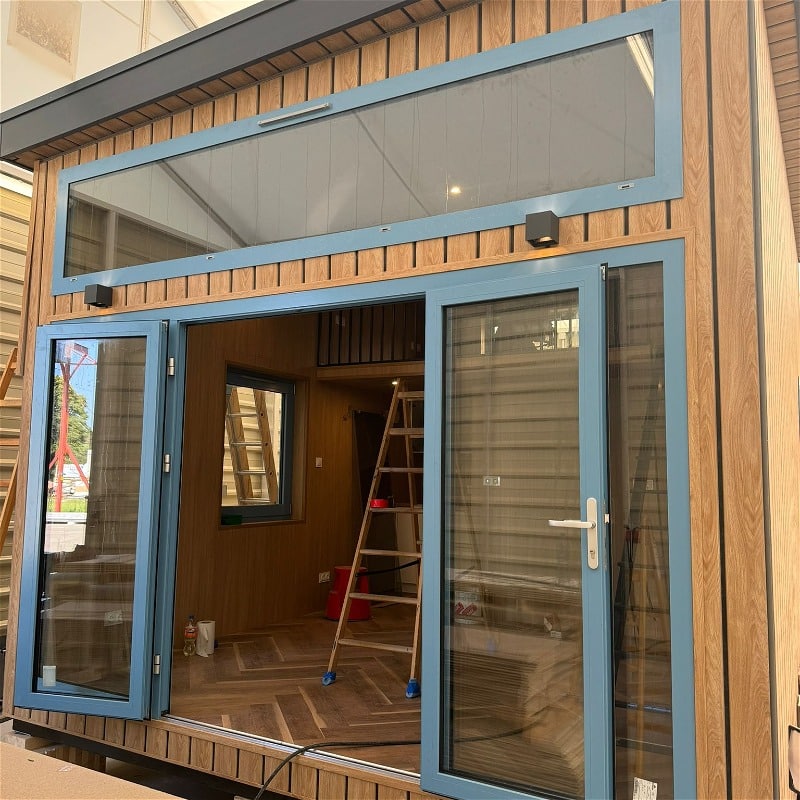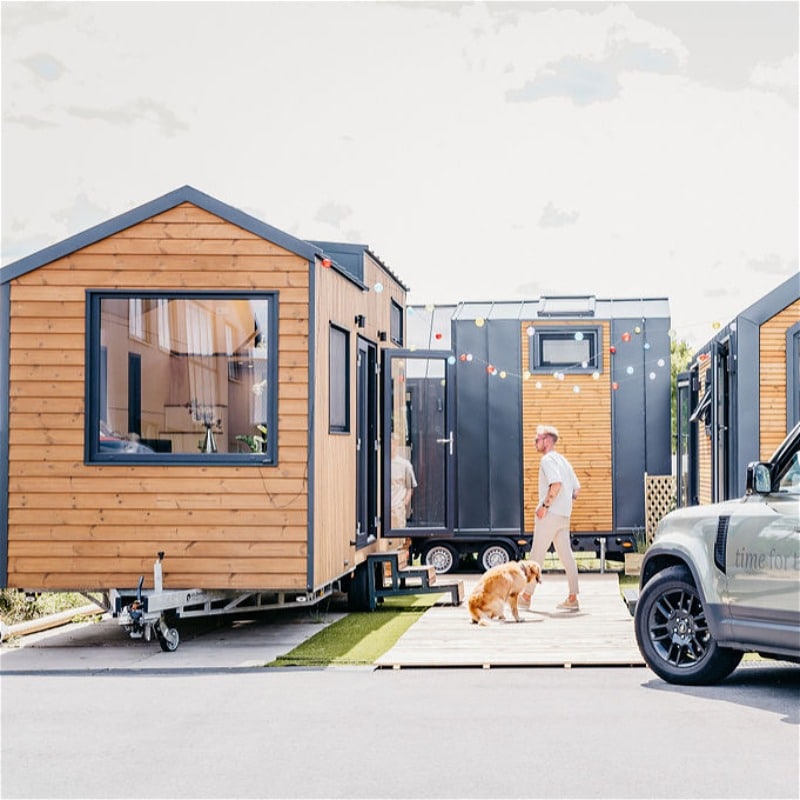

Tiny houses have become hugely popular in recent years, both among individuals and for recreation and camping. These small, efficient homes offer a unique way of living that embraces sustainability, simplicity and minimalism. When choosing a tiny house, one of the most important decisions is whether to go for a house on a fixed foundation without wheels, or a tiny house on wheels. Both options have their own advantages and disadvantages, and in this blog we will explore the differences between the two.
Tiny House on a fixed foundation
Advantages
1. **Larger living space**: A tiny house on a fixed foundation can be up to 60m2 in size. This offers more living space and design flexibility, making it possible to add an extra bedroom or a larger kitchen, for example.
2. **durability**: Due to its fixed foundation, this type of tiny house is generally more durable and stable than a house on wheels. It is more resistant to extreme weather conditions and provides a solid foundation that will last for decades.
3. **Fixed utilities**: Tiny houses on a fixed foundation can be easily connected to local utilities such as water, electricity and sewerage. This can significantly increase the comfort and functionality of the house.
4. **Permits and financing**: For individuals, obtaining building permits and financing for a tiny house on a permanent foundation can be easier than for a house on wheels. Local regulations are often more favourable for permanent structures.
Cons
1. **Lower mobility**: The biggest disadvantage of a tiny house on a fixed foundation is its limited mobility. Once the house is built, it is not easy to move around. This means you need to think carefully about the location before you start building.
2. **Higher costs**: The cost of building a tiny house on a fixed foundation can be higher than that for a house on wheels, mainly due to the foundation and connection to utilities.
Tiny House on Wheels
Advantages
1. **Mobility**: A tiny house on wheels offers the ultimate freedom to travel and change locations. This makes it ideal for people who like to explore new places or for campsites and leisure parks that want to be flexible in their offerings.
2. **Lower costs**: In general, construction costs for a tiny house on wheels are lower. No foundation is needed and the house can often be built more simply and quickly.
3. **Regulations**: Tiny houses on wheels are often subject to different regulations than permanent homes. This can offer advantages in some cases, such as less stringent building regulations.
Cons
1. **Limited Space**: Tiny houses on wheels tend to be smaller than their counterparts on a fixed foundation, often around 20-30m2. This can mean you have to sacrifice living space and amenities.
2. **Maintenance and Durability**: Because these houses are designed to travel, they may wear out faster and may not be as durable as houses on a fixed foundation. The undercarriage and wheels require regular maintenance to remain safe.
3. **Connection Utilities**: It can be more difficult to connect a tiny house on wheels to permanent utilities. This can be particularly challenging at campsites and recreational parks, where facilities may be limited.
Conclusion
Whether you choose a tiny house on a fixed foundation or on wheels depends a lot on your personal needs and lifestyle. For individuals looking for more space and stability, a tiny house on a fixed foundation may be the best choice. For those who appreciate flexibility and mobility, for example for recreation or camping, a tiny house on wheels offers numerous advantages.
At Tiny.nl, we understand the unique benefits of both options and offer tailor-made solutions to meet your specific needs. Whether you dream of a spacious tiny house in a fixed location or a mobile home to explore the world with, we are happy to help you make your ideal tiny house a reality.

